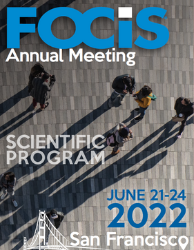Naïve Arthritogenic SKG T cells have a Defect in Anergy and a Repertoire Pruned by Superantigen
- CY
Chun Jimmie Ye, PhD
Associate Professor
UCSF
San Francisco, California, United States 
Judith Ashouri-Sinha, MD
Assistant Professor
University of California, San Francisco
San Francisco, California, United States- EM
Elizabeth McCarthy, n/a
graduate student
University of California, San Francisco
San Francisco, California, United States - SY
Steven Yu, n/a
research assistant
University of California, San Francisco
San Francisco, California, United States - NP
Noah Perlmutter, n/a
research assistant
University of California, San Francisco
San Francisco, California, United States - AW
Arthur Weiss, MD, PhD
Professor
University of California, San Francisco
San Francisco, California, United States
Presenting Author(s)
Co-Author(s)
How autoreactive CD4 T cells subvert tolerance to cause rheumatoid arthritis remains unknown. The SKG autoimmune arthritis model can be used to investigate these questions. Due to a mutation in ZAP70—a tyrosine kinase critical for T cell antigen-receptor (TCR) signaling—SKG T cells have severely impaired TCR signaling capacity resulting in a known defect in central tolerance. It is less clear whether they have an independent defect in peripheral tolerance. We used a reporter for antigen-receptor signaling in SKG mice to profile a T cell subpopulation that we previously identified is enriched for arthritogenic naïve CD4 T cells before arthritis onset by bulk and single cell RNA- and TCR-sequencing.
Our analyses reveal that despite their impaired proximal TCR signaling, a subset of SKG naïve CD4 T cells that have recently encountered endogenous antigen upregulate gene programs associated with positive regulation of T cell activation and cytokine signaling at higher levels than wild type cells in the pre-disease state. These arthritogenic cells also induce genes associated with negative regulation of T cell activation but do so less efficiently than wild type cells. Furthermore, their TCR sequences exhibit a previously unrecognized biased peripheral TCR Vβ repertoire likely driven by endogenous viral superantigens. These particular Vβs, known to recognize endogenous mouse mammary tumor virus (MMTV) superantigen, are further expanded in arthritic joints. Our results demonstrate that autoreactive naïve CD4 T cells which recognize endogenous viral superantigens are poised to contribute to arthritis pathogenesis, influenced by their altered transcriptome.

